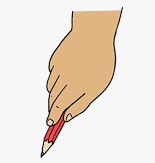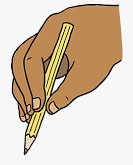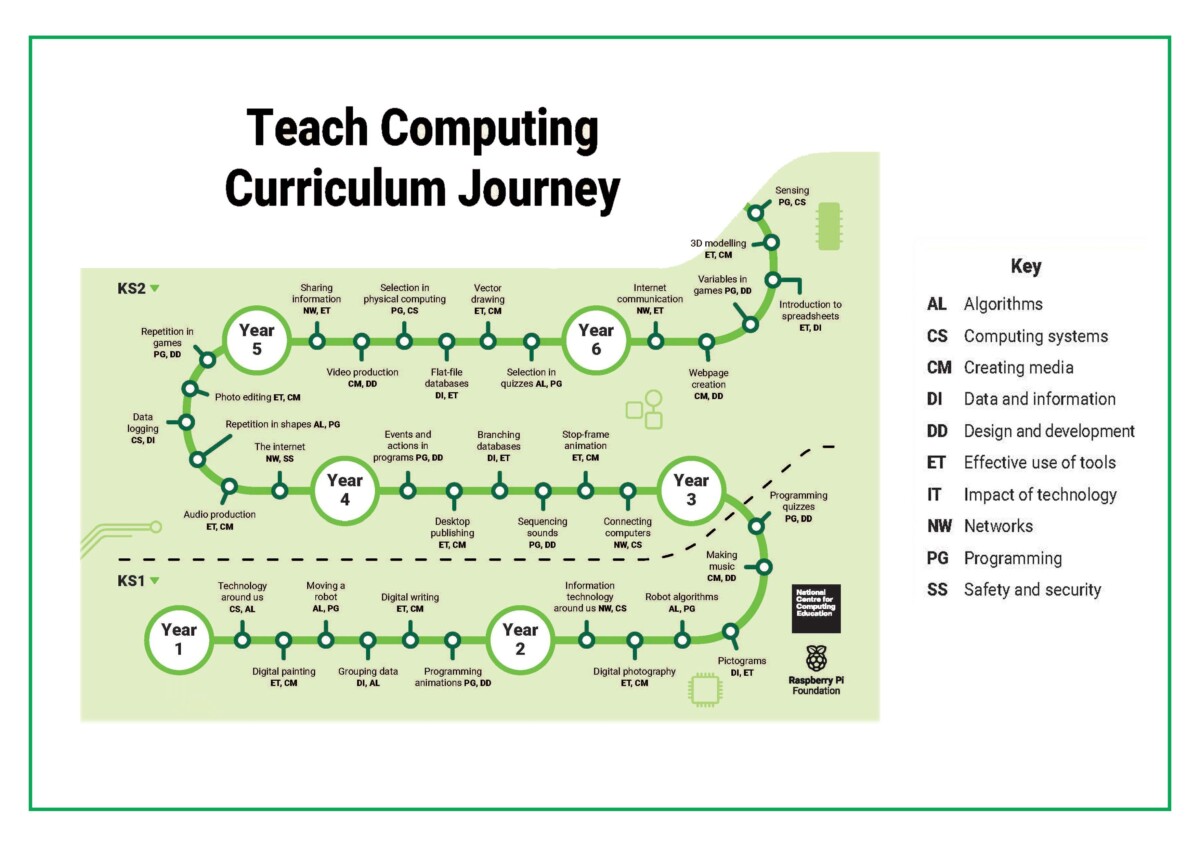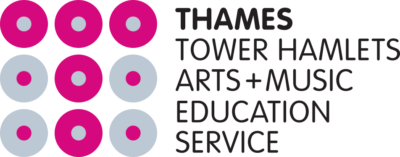Subjects
English - Reading
Reading and Phonics
 We teach reading through the Read Write Inc. Phonics programme.
We teach reading through the Read Write Inc. Phonics programme.
Learning to read is the most important thing your child will learn at our school. Everything else depends on it, so we put as much energy as we possibly can into making sure that every single child learns to read as quickly as possible. We want your child to love reading – and to want to read for themselves.
How will my child be taught to read?
We start by teaching phonics to the children in the foundation stage. This means that they learn how to ‘read’ the sounds in words and how those sounds can be written down. This is essential for reading, but it also helps children learn to spell well. We teach the children simple ways of remembering these sounds and letters. Ask them to show you what these are. The children also practise reading (and spelling) what we call ‘tricky words’, such as ‘once,’ ‘have,’ ‘said’ and ‘where’.
The children practise their reading with books that match the phonics and the ‘tricky words’ they know. They start thinking that they can read and this does wonders for their confidence.
The teachers read to the children, too, so the children get to know all sorts of stories, poetry and information books. They learn many more words this way and it also helps their writing.
How long will it take to learn to read well?
By the end of Year 2, your child should be able to read aloud books that are at the right level for his or her age. In Year 3 we concentrate more on helping children to understand what they are reading, although this work begins very early on. This happens when the teacher reads to the children and also when the children read their own story book.
How do I know the teaching will be good?
All the staff have been trained to teach reading in the way we do it in this school. Reading coordinator and Senior leadership watch teachers teaching to make sure that the children are learning how we want them to learn.
What can I do to help? Is there anything that I shouldn’t do?
You will be invited to observe how your child is learning phonics in school during their reception year. Please come and support your child. We would very much like you to know how to help.
Help your child to sound out the letters in words and then to ‘push’ the sounds together to make a whole word. Try not to refer to the letters by their names. Help your child to focus on the sounds. You can hear how to say the sounds correctly here:
If you can find time to read to your child as much as possible, it helps him or her to learn about books and stories. They also learn new words and what they mean. Show that you are interested in reading yourself and talk about reading as a family. Oxford Owl is a super dedicated website for parents with a wealth of helpful advice on synthetic phonics and over 260 free eBooks.
Does it matter if my child misses a lesson or two?
It matters a lot if your child misses school. The way we teach children to read is very well organised, so even one missed lesson means that your child has not learnt something that they need to know to be a good reader.
Connect with Read Write Inc.
Parents can find out about Read Write Inc on their Facebook page.
English – Writing
Creating a whole school ethos of high aspirations and expectations for all learners in writing
At St Mary and St Michael, we aim to promote a love of writing and grammar through high quality teaching and a shared ethos that has at its heart high expectations for all our pupils. We work hard and collaborate well to deliver an English writing curriculum which uses high quality texts and writing stimuli that the children can relate to, enjoy and which inspire them. We want our students to become confident, creative independent writers with their own voice and flair.
In the classroom our teachers expose our students to many different genres and styles suited to their age. We follow The Literacy Tree approach from Reception through to Year 6.
Literacy Tree is a complete, book-based approach that covers all requirements of the Primary English curriculum. The approach provides book-based planning sequences, Writing Roots, which embed complete curriculum coverage and engage children to write with clear audience and purpose. The Teach Through a Text pedagogy is the backbone of each sequence. It is a fun, creative and rigorous approach to developing writing. Grammar is taught within English lessons so that the students are able to see how the written language works in a context they can engage with.
Our students are taught spellings twice a week with an ‘investigation’ and ‘practise’ lesson as well as a homework investigation. Pupils are then given the opportunities to embed their spelling skills within their writing. In KS1 phonics is taught through Read, Write, Inc. and our KS2 teachers use the Purple Mash spelling overviews of each year group to teach spellings weekly. We use a range of fun, investigative and interactive methods to teach new spelling patterns and rules. Handwriting is taught using the Nelson’s handwriting scheme which is modelled throughout the school in discreet lessons and by example.
Early Writing
Spoken Language
When children join us in EYFS we support them in learning to write in a variety of ways. We are a story-telling school, placing a big emphasis on spoken language and oracy as it underpins the development of both reading and writing. The quality and variety of language that pupils hear and speak are essential to their development and, as such, we ensure that:
- We model the correct spoken English when communicating
- We echo back what is said with new vocabulary added (where appropriate)
- We model, teach, display and practice tier 1, 2 and 3 vocabulary linked to the curriculum
- We tune into pupil’s play and demonstrate active listening
- Drama and role-play are commonplace to help pupils develop ideas
- Trips are purposeful and expose children to new experiences and vocabulary
- Talk and play are encouraged in EYFS through engaging, well-planned indoor and outdoor learning environments
- Story time and reading for pleasure takes place daily
Listening
Communication requires two foundational skills; listening and understanding. Good attention and listening skills help with all areas of learning particularly; social skills, understanding, ability to follow instructions and overall communication.
We teach listening skills throughout the school however we place a particularly big emphasis on this in EYFS. Teachers explicitly teach and model how to show good listening and we encourage this at all times.
We teach children to:
- Face the speaker and give good eye contact
- Listen for non-verbal cues
- Allow the person to talk without interrupting
- Give their full attention
- Listen out for clear prompts to support listening e.g. if someone says your name
- Look out for non-verbal cues such as objects of reference to support attention or understanding
Pencil Grip
Building up finger strength in EYFS is important to prepare children for early writing – activities such as threading, playdough, puzzles and painting supports this. We also help children to develop fine motor skills to support their grasp, hold and strength through activities like scrunching up paper or using tweezers to pick up shapes. Finally, activities like climbing, throwing and catching support gross motor skills and help to develop core strength for writing.
As children develop their strength they begin to display various pencil grips as seen below:
Cylindrical grasp
(1 – 1 ½ years)

Digital grasp
(2 – 3 years)

Modified tripod grasp
(3 ½ – 4 years)

Tripod grasp
(4 – 5 years)

Handwriting
Many argue that good handwriting is no longer essential due to the introduction of technology in our lives. Whilst at St Mary and St Michael’s we recognise that many of our pupils will use ICT as part of their future careers, we also believe that teaching handwriting remains a priority for us for a number of reasons.
Being able to write fluently, easily and with joins helps make the act of writing more enjoyable. If you are able to write with ease, you are able to spend more time thinking about what you want to write and exploring / experimenting with ideas rather than spending time thinking about forming the letters and getting them to sit on the line.
Our aim is to ensure all of our pupils can write fluently with neat joins so they can quickly and effectively get their ideas down on to paper and others are able to understand those ideas and read what has been written.
At St Mary and St Michael’s we use the Nelson Handwriting scheme to ensure good quality handwriting sessions take place. Our policy and Handwriting overviews are clear and precise about how handwriting should be taught on Year 1 – Year 4. In Year 5 and Year 6 spellings are taught.

Maths

At St Mary and St Michael, we believe that all students can enjoy and improve their achievement in mathematics. It is no longer acceptable to say that only certain types of people can learn mathematics. All learners need to believe they can succeed and also believe that their teacher, and parents, believe they can succeed.
The vision for mathematics in our school embraces the aims and content of the National Curriculum and we do this by following the ‘Can Do Maths’ approach to the teaching of mathematics. Adopting a growth mind-set is at the heart of the ‘Can Do Maths’ approach including the use of ‘yet’ and knowing that making mistakes is an essential part of learning. Parents, teachers and the media thinking it’s acceptable to use phrases such as ‘Don’t worry, I can’t do maths’, ‘Maths is too hard’, etc. all contribute to learners feeling that they ‘can’t do’ maths.
Our daily teaching focuses on developing secure and deep mathematical understanding. The “Can Do Maths” approach includes the use of practical resources and iconic representations that support the learning and memorisation of mathematical concepts. Every lesson allows our children to demonstrate, secure and deepen their understanding of mathematical concepts and there are daily timetabled maths meetings in each year group where children can further practise and develop their skills.
We believe that the teaching of ‘rules’ and ‘tricks’ with no understanding and the use of only ‘standard’ examples contribute to learners feeling they ‘can’t do’ maths.
Curriculum Statement for Maths
Maths Progression Documents
Place Value Progression Knowledge Organiser
Addition Progression Knowledge Organiser
Subtraction Progression Knowledge Organiser
Multiplication Progression Knowledge Organiser
Division Progression Knowledge Organiser
Fractions Progression Knowledge Organiser
EYFS Curriculum Documents
KS1/2 Curriculum Documents
Calculation Progression by Year Group
Can Do Maths EYFS Year Overview
Overview of Key Assessment Points by Year Group
KS1-KS2 Year Group Learning Intent Documents
Science
At St Mary and St Michael, we give the teaching and learning of science the prominence it requires as one of the core subjects taught in Primary Schools. We provide a high-quality science education, which is delivered through the disciples of biology, chemistry and physics. This provides children with the foundations for understanding the world around us. We recognise the importance of science in every aspect of life and it is essential that all pupils are grounded in the knowledge, methods, processes and applications of science to be ready for a life where science is at the centre of the future of the human race and planet earth. Our aim is to build on the children’s natural enthusiasm and curiosity to find out about the world around them and make better sense of their environment.
At St Mary and St Michael, we follow the national curriculum through the use of the ‘White Rose Science Scheme’ from years 1-6 and try to make links wherever possible with other subjects. The scheme has been introduced to provide a structured and coherent programme that builds progressively through each year. As the children progress through the school, they are introduced to more complex scientific ideas.
Working scientifically are integral to the White Rose scheme and most lessons ensure children complete practical activities which allows the children to have hands on experience while developing their scientific skills of observing, measuring, classifying, predicting, hypothesising, experimenting and interpreting discoveries. Each unit of work consists of exploration through investigations (both long and short) looking for changes over time and gathering evidence and results and drawing conclusions from these.
Within the Early Years, it is fundamental that children learn through hands on experience and there is an importance of building the foundation for them to develop their science enquiry skills throughout primary school. The PZAZ scheme of work is a comprehensive and dynamic framework designed to elevate the delivery of Science lessons and foster engaging and effective learning experiences. We know that children learn best through play and PZAZ supports the children to learn and discover, both independently and with the support of an adult facilitating their understanding.
Science School Overview Y1 – Y6
Working Scientifically Overview Reception
Computing
At St Mary and St Michael Catholic Primary School, we aim to provide a relevant, challenging and enjoyable computing curriculum that helps our pupils to participate in the rapidly changing world where work and leisure activities are increasingly transformed by technology. Computing is taught through a combination of discrete lessons following the Teach Computing curriculum published by the National Centre for Computing Education. Skills are also practised as part of literacy, numeracy, RE, science and topic lessons which allows children to use computing to enhance their learning.
By the time pupils leave primary school, we aim to develop pupils who:
- Are responsible, confident and creative users of technology, who apply computational thinking beyond the Computing curriculum.
- Are digitally literate and are active participants in a digital world.
- Know how to stay safe whilst using technology and on the internet, minimising risk to themselves and others.
- Understand and follow agreed E-Safety rules, and know who to contact if they have concerns, including the use of report buttons.
- Have repeated practical experience writing computer programs in order to solve problems, including logic & algorithms.
- Ask and answer questions through collection, analysing, evaluating and presenting data and information.
- Understand how digital networks work and the services they provide.
- Use search options effectively, understanding the need to evaluate the relevance of content.
Curriculum Statement for Computing
Computing Curriculum Journey
History
At St. Mary & St Michael, we follow Kapow Primary’s History scheme of work. The aim of this scheme is to inspire pupils to be curious and creative thinkers who develop a complex knowledge of local and national history and the history of the wider world. We want pupils to develop the confidence to think critically, ask questions, and be able to explain and analyse historical evidence. Through our scheme of work, we aim to build an awareness of significant events and individuals in global, British and local history and recognise how things have changed over time. History will support children to appreciate the complexity of people’s lives, the diversity of societies and the relationships between different groups. Studying History allows children to appreciate the many reasons why people may behave in the way they do, supporting children to develop empathy for others while providing an opportunity to learn from mankind’s past mistakes. Our History scheme support pupils in building their understanding of chronology in each year group, making connections over periods of time and developing a chronologically-secure knowledge of History. We hope to develop pupils’ understanding of how historians study the past and construct accounts and the skills to carry out their own historical enquiries. In order to prepare pupils for their future learning in History, our scheme aims to introduce them to key substantive concepts including power, invasion, settlement and migration, empire, civilisation, religion, trade, achievements of humankind, society and culture. Our History scheme of work enables pupils to meet the end of Key stage attainment targets in the National curriculum and the aims also align with those set out in the National curriculum. For EYFS, the activities allow pupils to work towards the Understanding the world Development matters statements and Early learning goals, while also covering foundational knowledge that will support them in their further history learning in Key stage 1.
Curriculum Statement for History
History-Skills-Progression-Map
Geography
At St. Mary & St Michael, we follow Kapow Primary’s scheme of work. The aim of this scheme is to inspire pupils to become curious and explorative thinkers with a diverse knowledge of the world; in other words, to think like a geographer. We want pupils to develop the confidence to question and observe places, measure and record necessary data in various ways, and analyse and present their findings. Through our scheme of work, we aim to build an awareness of how Geography shapes our lives at multiple scales and over time. We hope to encourage pupils to become resourceful, active citizens who will have the skills to contribute to and improve the world around them.
Our Geography scheme encourages:
- A strong focus on developing both geographical skills and knowledge.
- Critical thinking, with the ability to ask perceptive questions and explain and analyse evidence.
- The development of fieldwork skills across each year group.
- A deep interest and knowledge of pupils’ locality and how it differs from other areas of the world.
- A growing understanding of geographical concepts, terms and vocabulary.
Our Geography scheme of work enables pupils to meet the end of key stage attainment targets in the National curriculum. The aims also align with those in the National curriculum. For EYFS, the activities allow pupils to work towards the ‘Understanding the world’ Development matters statements and Early learning goals, while also covering foundational knowledge that will support them in their further geography learning in Key stage 1.
Curriculum Statement for Geography
Geography-Skills-Progression-Map
Music
At St Mary and St Michael we strive to provide all pupils with a high-quality music education which engages and inspires children to develop a life-long love of music, increases their self-confidence, creativity and imagination, provides opportunities for self-expression and gives a sense of personal achievement.
In Years 1, 2, 5 and 6 we use the Sing Up scheme of work which enables the children to engage interactively to learn skills based on listening and appraising, creating and exploring, singing, playing instruments and performing.
We are also supported by THAMES Music to provide our children music tuition from specialist music tuition.
In Years 1 and 2, children are introduced to playing the African drums.
In Year 3 children learn to play the violin.
In Year 4 children are split into smaller groups and are taught to play the violin, cello or guitar.
Children in Year 5 are given the opportunity to continue instrumental tuition if they choose to.
Singing is central to the music curriculum at St Mary and St Michael as research has shown that singing has a positive impact on emotional, physical and mental well-being.
Thames Music Instrument Tuition

Instrument Tuition at St Mary and St Michael
At St Mary and St Michael School we are using the Sing Up music scheme.

SUM_Skills_progression_overview__1-yr_cycle
SUM_Units_at_a_glance__1-yr_cycle
Art
In our school we value opportunities for pupils to learn through exploration, developing their skills and creating their own original designs and art work.
In our Art lessons, we develop creative thinking, originality and imagination. Pupils have the opportunity to use a variety of media to develop and explore their skills through drawing, printing, sketching, using clay and other material for 3D modelling. All pupils learn about artists and art in different cultures. They use artists’ work, working with artists and trips to art galleries to stimulate and inspire their work.
Design and Tecnology
At St Mary and St Michael we believe that a high-quality Design and Technology curriculum should engage, inspire and challenge pupils. Design and Technology is an inspiring, rigorous and practical subject. Using creativity and imagination, pupils design and make products that solve real and relevant problems within a variety of contexts, considering their own and others’ needs, wants and values. They acquire a broad range of subject knowledge and draw on disciplines such as mathematics, science, engineering, computing and art. Pupils learn how to take risks, becoming resourceful, innovative, enterprising and capable citizens. Through the evaluation of past and present design and technology, they develop a critical understanding of its impact on daily life and the wider world. We are very aware of living in a technological age and therefore aim to present our pupils, from a very early age, with problem-solving activities utilising their natural creativity.
Year 5 participate annually in the Architecture in Schools Programme sponsored and delivered in partnership with the Canary Wharf Group.
Curriculum Statement for Design and Technology
Design and Technology Progression Map
Architecture in Schools Presentation 2022
Spanish
Curriculum Statement for Spanish
Spanish Language Progression Map KS2
PE
At St Mary and St Michael School we believe that Physical Education (PE) plays a fundamental role in a child’s development. Physical Education (PE) can inspire and challenge an individual. We understand that a positive and well balanced PE curriculum can lead to lifelong participation in sport and can help children lead healthy active lifestyles.
All children at key stage one and two participate in two hours of PE a week. We ensure our PE curriculum meets the statutory requirements of the National Curriculum and provide learning opportunities in dance, games, gymnastics, athletics and outdoor education. In addition, children in years 2, 3, 4 and 5 will also complete a term of swimming. It is expected that all children change into their PE kit during lessons.
Our passion for PE was recognised in 2014/15 by being the first school in Tower Hamlets to receive a Sainsbury School Games Gold Award. Since then we have maintained our Gold standard and have worked closely with the Tower Hamlets Youth Sport Foundation to help raise the profile of PE within Tower Hamlets primary schools.
Follow our PE blog or our PE twitter account (@MissClough_SMSM) for more information on our participation and success at competitions.
PE Curriculum Progression Map
PE Curriculum Progression Map – Reception
RSE - Life to the Full
Since September 2021 St Mary and St Michael Primary School adopted the programme, Life to the Full, by Ten Ten Resources.
For details, please click through to RSE on our Religious Education Curriculum page under Catholic Life





